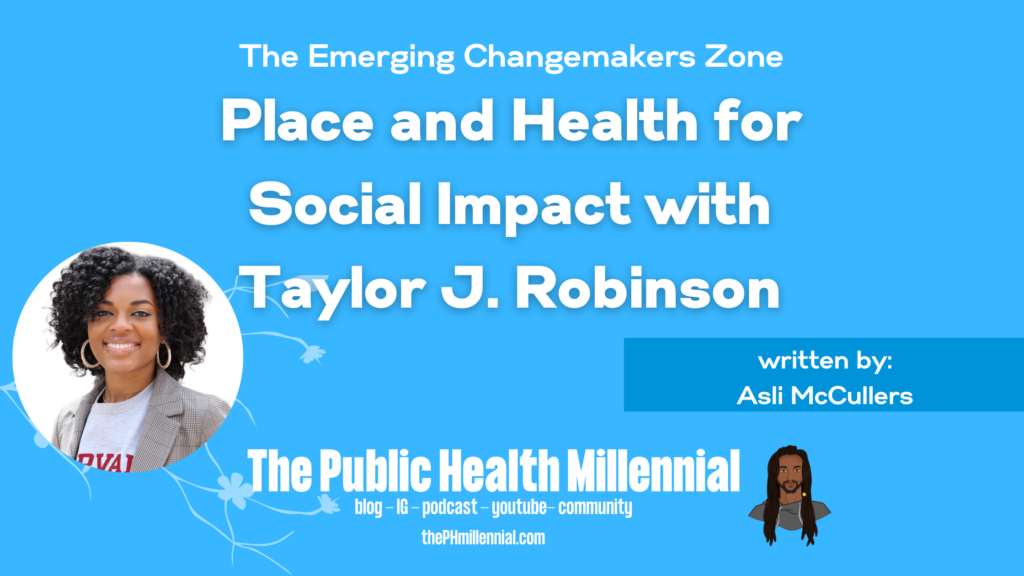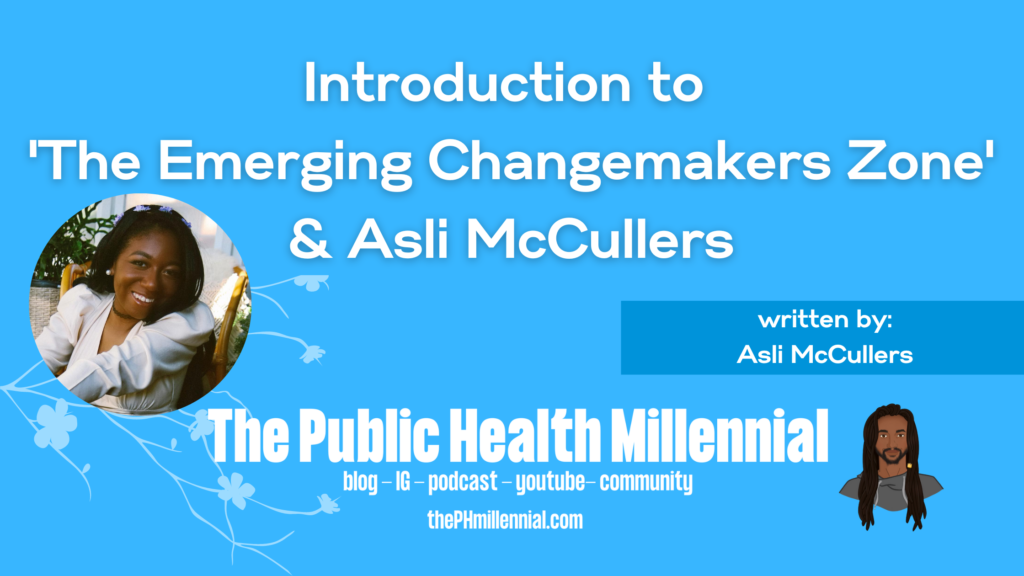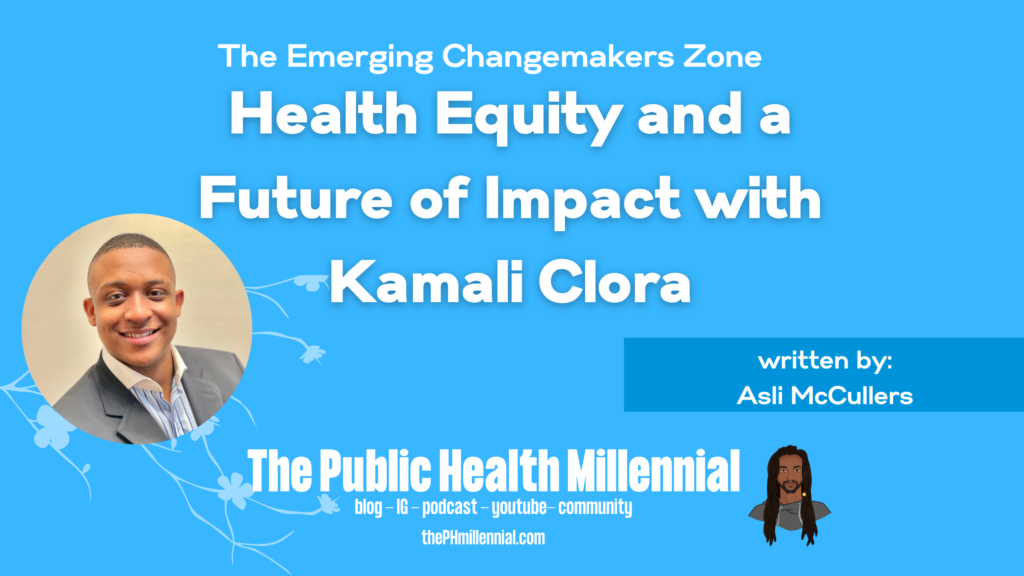Taylor J. Robinson is a second year Population Health Sciences PhD student at the Harvard T.H Chan School of Public Health studying social and spatial epidemiology. Her current research focuses on racial disparities in sleep, and how neighborhood disinvestment and other factors related to neighborhood change (residential segregation and gentrification) shape health outcomes.
She previously earned her MPH in Epidemiology and Bachelor of Arts in Communication Rhetoric from the University of Pittsburgh. In this conversation, we discuss the steps that aligned Taylor into a career in health equity, and how her experiences and perspectives of injustice shape her efforts at the intersections of social epidemiology and housing policy.
“Find Your Space” Taylor’s Path to Public Health
Taylor has given thought to the ways that where we live, work and play impact our health outcomes and how these environments are socially structured. She shared that after attending a racially diverse array of schools during her K-12 journey, she realized early on that neighborhoods are a significant indicator of health and opportunity and that the livability of communities is informed by structural factors such as investment. She provided the following critical reflection;
“…growing up, I thought a lot about the ways that neighborhoods are structured—especially when attending school. I first went to a private Catholic school in a predominantly Black neighborhood…when I was in high school, I went to an all-girls school that was in a predominantly white neighborhood. Commuting to class every day, I started to think about the ways that the sidewalks would get better, there would be more trees, less traffic, less noise, and more open space. Going to that school, which was a great opportunity, made me think a lot about how other people within my own community aren’t afforded the same access to different resources, education, and professional networks. So, at that age I was thinking about how neighborhoods are structured and how history informs the type of opportunities that people have based on where they live.
Taylor’s passion was ignited by those neighborhood observations during her upbringing, and while she initially wished to pursue a career in lab science or medicine, public health ended up being her perfect vessel for enacting change. After losing family members to cancer, Taylor gained a specific interest in learning how to tackle pressing issues related to health disparities that are best addressed with the skill of a public health professional. On her journey, she shared:
“In the wet lab, I felt a little removed from the broader impact. I felt like, even though it’s important to continue to make developments and find new treatments and new solutions, there still will be people that I know that would have differences in access to care… Later in college, I decided that I wouldn’t go down the wet lab route. I wanted to do more hands-on work, and the only thing that really stood out to me was to be a physician. Most people have that mindset that if you like health, science, and you want to help people, you become a doctor. But…I felt that [medicine] was too individual for what I particularly was interested in. I started shadowing in different areas in the hospital…in obstetrics, critical care, the emergency department… and the whole time, I was thinking about how some of the situations I was seeing inform larger health inequities: the ways that physicians would talk to each other, the way that there would be a lack of diversity in a lot of these hospitals, why Black women die [in birthing] at disproportionate rates. So, those were the questions I had in my head that I didn’t feel like were answered by medicine or particularly worked on by physicians.”
From this realization on, Taylor went full speed ahead into public health experiences, starting with her internship with NIH Amgen Scholars focusing on health disparities and health policy, and later being accepted into an accelerated masters program in Epidemiology at University of Pittsburgh. During her masters, trailblazing became Taylor’s speciality, along with a host of other amazing achievements. She served as the President of Fostering Opportunities to Recognize, Welcome, and Advance Racially Diverse Students (FORWARDS), an organization at Pitt that acknowledged the need for more support for the wellbeing of racially minoritized students! She co-founded the first Black Public Health Association at Pitt Public Health, allowing both the Black graduate and undergraduate students in public health at the University of Pittsburgh to network with each other. In addition, she founded the “Emerging Epidemiologist” award through the Pitt Public Health Epidemiology Department, which is awarded to racially minoritized high school students demonstrating a dedication to public health. Taylor later became a CDC Ferguson Fellow.
Place and Health: Pursuing Spatial Epidemiology at Harvard as a Tool for Advancing Health Equity
“Finding your niche” is an important part of forging your health equity journey, and Taylor is already finding hers in spatial epidemiology. GIS is an important field in public health – I’m a part of several projects that incorporate GIS (and I even have a homework assignment related to GIS due tomorrow night, LOL). So, I was super excited to hear more about Taylor’s interest in GIS, and how she’s carving out health equity in her work so far. She shared the following fascinating insights;
“…I do think that growing up in Pittsburgh definitely shaped my interest in utilizing maps and thinking about location-based factors. The city has a very long history of residential segregation, which informs current day health outcomes…I’m very in tune with the history of urban renewal in Pittsburgh in the 1950s and how the destruction of the Hill district shapes current burden and lack of access in the Hill today. So, I think from a research perspective, I always wanted to make sure that I am being considerate of both historical and current injustices and how that influences health outcomes… I feel like GIS is a good way of being able to utilize this unique method of tying those different forces together and seeing how they shape health outcomes. While I was in my master’s program, I did a project that was looking at racial disparities and asthma and thinking about social and economic factors that can shape asthma health outcomes, particularly for Black individuals in Pittsburgh. So, seeing that at a very local level was really useful to talk to different policy officials in Pittsburgh about the ways that some of these factors shape asthma. And now in my PhD I still have the same focus, less so on asthma, but still utilizing geospatial techniques”
After her masters degree, Taylor decided she wanted to take her GIS research skills to the next level by pursuing her PhD at Harvard University. A resounding sentiment among the Ivy League friends we’ve interviewed here at the Emerging Changemakers Zone is that it’s more than just “the name”, but also truly about the program being the best fit for their goals. Taylor shared some thoughts on her personal testament to this:
“Harvard is the only PhD program that I applied to outside of the Epidemiology Department. At Harvard Public Health, the Social and Behavioral Health Sciences Department houses the Social Epidemiology unit…Harvard’s program really stood out to me because it was really focused on policy and intervention evaluation, trying to expose students to theory and theoretical applications and how that informs health outcomes. Also at Harvard are the leading researchers in health equity and racial health disparities, so it seems like a good fit, particularly to get the type of information and research techniques that I want. In addition, they have a good stipend and a really diverse cohort where we all have completely different interests and backgrounds. Overall, it’s the opportunities of Harvard, the network and the focus on intensive research methods that really brought me to the school.”
Taylor’s Vision for Impact and Advice for Aspiring Scholars
Taylor is already making astonishing waves at Harvard, as she’s already served as a Rappaport Public Policy Fellow at the Massachusetts Department of Housing; and a teaching assistant in biostatistics and social and behavioral sciences for several exciting courses! Taylor is also learning more about housing policy and neighborhood change through an internship at the National Community Reinvestment Coalition (NCRC).
Mentorship has also been a part of her journey-to-date; Taylor serves as a Harvard Greener Scott Mentor and Board Member, a program dedicated to matching Black Harvard undergrad and graduate students for mentorship. To scholars interested in following in Taylor’s footsteps, she gave the following pieces of excellent advice:
- “One piece of advice I have is to always ask questions”. I feel that even as a graduate student, people get into a situation where they’re like, ‘Oh, I don’t want to ask because I don’t want to feel dumb or I don’t want anybody to judge me’. I feel that life is too short. We need to ask questions. We need to be curious about different topics and not be afraid to not understand something. I think that asking questions is one of the ways that I’ve learned so much in my career, and I’ve tried to be very thoughtful about my research areas and asking different types of people different questions will, I think, broaden different horizons and allow people to learn more about other opportunities.”
- “Seek opportunities…It’s really important to always seize ways to get involved or look for opportunities to do what you want to do. Even for me, I know that I have a lot of interests, but I try to keep my eye out for different applications and different fellowships to be really resourceful and strategic about some of the things that I try to pursue, especially if I’m trying to elevate my career or to help another student. I think it’s just good to be open-minded and see things as they arise”
- “Uplift other students or other people… academics and people in general can be very siloed in their own career. Sometimes answering people’s emails that are trying to reach out to you because they’re interested in your career or they want to learn more about your research, is a big part of just being open and allowing more people to enter the field. I faced many different experiences where I was really interested in something, so I reached out to people, then I never got an email back. It’s very limiting. I think that trying to be really mindful of uplifting other students, especially if you come from very similar backgrounds, is extremely important.”
I always love asking our changemakers about where they see success looking for them in the future, and Taylor emphasized that uplifting others is a major element of her vision. She shared, “I hope that eventually my success will look like bringing up other students, serving as a good mentor and helping other people get to where they need to go. I am very much in support of helping other people.”
Thank you so much to Taylor for this wonderful conversation! Writing this was tons of fun, and I am looking forward to rooting for her in her continued accomplishments! 😊
Connect with Taylor on Linkedin or Twitter, and share this with a student interested in health equity work!
If you want to hear another great “Why Harvard?” story, check out the write up from our previous interview with Joseph Wilson Jr, a fellow PhD student at Harvard!



